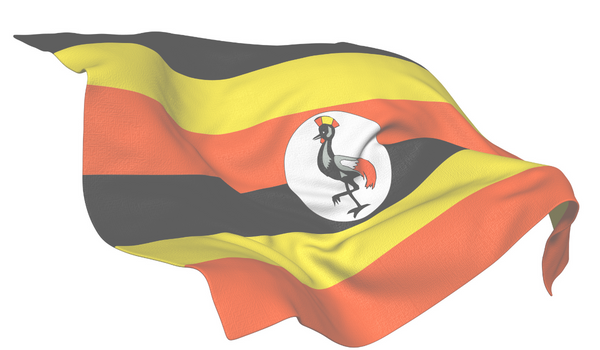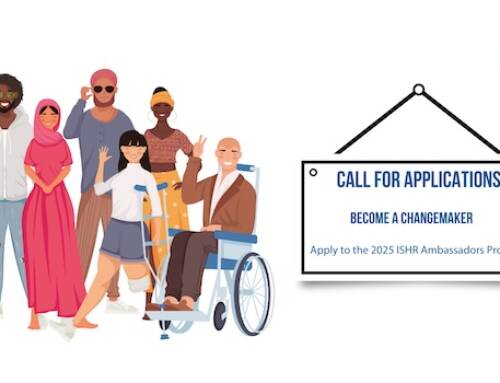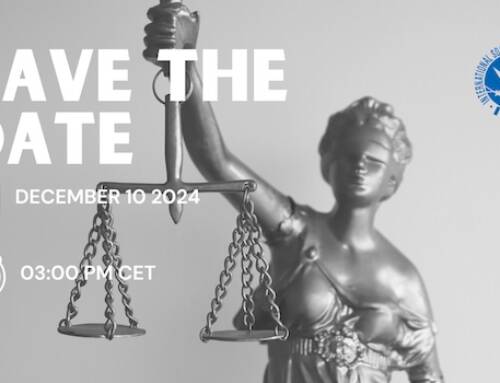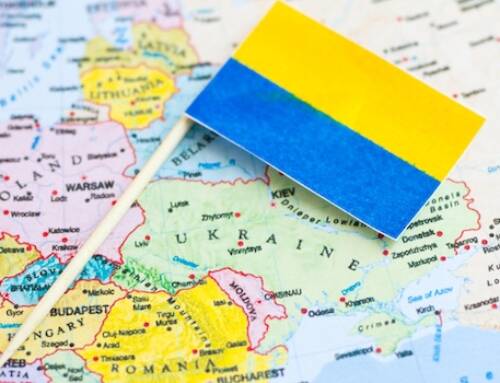

Editorial: Looking with concern to Taiwan and Qatar
While the war in Ukraine continues to keep the world on tenterhooks, although the tide seems to be slowly turning, two other issues with direct human rights relevance come into focus for us this November: first, the growing tensions between China and Taiwan and, rather inevitably, human rights conditions in the host country of one of the biggest sporting events of the year: the Men’s Soccer World Cup in Qatar.
Many members, partners and friends of the ISHR believe it is very likely that Taiwan will be the next major human rights disaster triggered by China meaning that the currently already intolerable situation will deteriorate further. Not least because ISHR has a long tradition of supporting human rights defenders in Taiwan, including those highlighting problems in the country. We are watching current developments with great attention and growing concern, and are doing our best to support our friends and partners who are concerned with Taiwan.
The Men’s Soccer World Cup, which will be held in Qatar starting on Sunday, November 20, brings the small state on the northeastern coast of the Arabian Peninsula to the attention of the world. Being one of the biggest sporting events of 2022, the World Cup has long been of concern to soccer fans and human rights activists alike, as the human rights situation in the small country’s absolute monarchy is catastrophic. Qatar has been ruled as a hereditary monarchy by the House of Thani since Mohammed bin Thani signed a treaty recognizing the country’s status with the British in 1868.
The heated discussions, which range from gentle diplomatic influence to a full-blown “World Cup boycott,” once again highlight the dilemma the international community faces between economic interests and human rights values. Against the backdrop of the war in Ukraine, sanctions against Russia, the global energy crisis and skyrocketing energy prices, the small Gulf state is on its way to becoming one of the most influential players in the global energy market. This is due to the fact that the country has some of the largest reserves of natural gas, which is seen in many ways, especially in Europe, as an alternative to oil and a transitional energy source during the shift towards renewable energy, but also as a short-term alternative to Russian natural gas. In this context, many worryingly point out that Europe is on the verge of again becoming dependent on a questionable regime and is taking quick steps out of current necessities that would later be regretted.
At the same time, sudden moral appeals from the soccer world regarding labor standards, human rights, and corruption in Qatar seem somewhat bizarre when one keeps in mind that Qatar is only the most recent example and current scene in the long history of FIFA’s questionable machinations. Little Qatar, which is trying to strengthen its geostrategic position with its global investment strategy and clever use of emotional bonding moments like a World Cup, has found an enabler in FIFA that doesn’t ask too many questions. It is important and right to criticize Qatar for its failure to respect human rights standards and principles. But it is just as important to criticize the “system of soccer” or similar the “system of Olympics”. A system that in itself has numerous elements that are questionable in terms of human rights (the global transfer market or rampant corruption at all levels are just two examples) and from which Western democracies joyfully profit year after year far less critically. Soccer is an exciting, unifying sport, but unfortunately also one of the dirtiest businesses in the world.
Stay connected with us in supporting human rights defenders worldwide.

Thomas Paul Schirrmacher
President – ISHR

Matthias Boehning
Secretary General – ISHR
Uganda: Government should account for Heinous Violations

It is not uncommon for Uganda to make it in the International media for the most outrageous of reasons. The reporting on Uganda is often characterized by the portrayal of a dire human rights situation that the regime in Kampala has occasioned to the people it ought to protect. However, the international media until November 2020 had not seen, on camera, the extent to which the regime can go for self-preservation.
Russia: Izolyatsia, the Kremlin’s Master Detention Facility

As the war on Ukraine by the Russian regime ravages, more gross violations of human rights by the Russian state and its backed Separatists continue to surface. A very recent picture of these violations is the arbitrary imprisonment of pro-Ukraine activists and scholars in the ‘Izolyatsia prison. Izolyatsia is a former factory, previously used for cultural purposes, that has since been converted into a torture prison by the Russian Federation. A website dedicated to the former factory named ‘Izolyatsia Must Speak,’ states that, ‘Izolyatsia’ is an illegal prison, equipped by the Russian Federation on the site of a former insulation materials factory in the temporarily Russian-occupied territory of Ukraine in Donetsk. Further that the Russian-Ukrainian armed conflict in Ukrainian Donbas, this space was used by the ‘Izolyatsia’ platform for cultural initiatives.
Africa: Democracy and Human Rights

On the one hand, the concept of human rights, alongside its foundational concept of freedom, presses itself upon free democratic constitutional states as an ideal. Democracies around the world appear to be best able to protect human rights, even if this is not automatic. “Just how closely basic rights and democracy are interrelated is shown by a countercheck: As far as is observable, there is no other political system that not only theoretically guarantees basic rights but rather achieves them in individual cases. There are also basic rights catalogs in non-democratic countries. However, only in democratic systems are there independent courts and effective protection of basic rights.”
Pakistan: Interview by Karl Hafen

On 3 September 2022, Karl Hafen spoke to Patras Masih via video conference, translated by his lawyer Aneeqa Maria Anthony.
Cameroon: Growing Trend of Reprisals against Human Rights Defenders in Cameroon for their Cooperation with the United Nations

While the Anglophone crisis in Cameroon rages on, there has also been a growing trend to make use of acts of intimidation and reprisals against human rights defenders for their cooperation with the United Nations (UN). The UN Secretary-General denounces such acts in an annual report to the UN Human Rights Council (UN HRC), and recently, also to the UN General Assembly. These acts inflict fear. When ahead of the UN HRC’s regular session in June 2021, 62 NGOs urged the UN HRC Member States to address the “Cameroon’s human rights crisis”, the names of 17 of the 62 NGOs were kept confidential “in light of the security environment they face.”
Belarus: The Repressions against Priests and Believers

The regime of Aliaksandr Lukashenka continues to persecute priests and believers of various faiths for their civic stance and their condemnation of violence and the war of Russia against Ukraine. The number of detentions of priests and believers is growing and now churches, temples and different places of worship are being confiscated from the believers.
Twitter Spaces: Knowledge Sharing Series

We at the ISHR pride ourselves in knowledge sharing as a tool for advocacy. These series will enable us connect with key actors in the human rights ecosystem around the world. We believe that bringing everyone into a safe space to share their stories, knowledge and experiences will strengthen our network as well as open opportunities for collaboration.
We are delighted to host the second edition of our Knowledge sharing series on the 20th of October 2022. These series will take place on every 3rd Thursday of the month from 6:00–8:00 PM CET.
Afghanistan: Mass Human Rights Violations, Away from the Eyes of the Media

Hindu and Sikh minorities face religious and social discrimination in Afghanistan. They cannot perform their religious practices freely. They face serious limitations and restrictions regarding their religious practices. For instance, cremation of the deaths is the main challenge that is mostly restricted by local authorities and the public.
Ethiopia: Rape as Weapon of War in Tigray

On 4 November 2020, a military confrontation ignited between the Ethiopian government and its Eritrean allies and regional forces in Tigray. From the onset, the war was characterized by indiscriminate and wholesale attacks against the civilian population. The roster of brutalities is lengthy: hundreds of thousands are dead, millions are displaced, and essential civilian infrastructure and services are completely dismantled.
Pakistan: Patras Masih Released from Custody on Bail

“Thank you for always being there!” – these are Patras Masih’s own words. On February 19, 2018, supporters of the Islamic extremist party TLP blocked a main artery of Lahore, capital of Pakistan’s Punjab province, demanding that Patras Masih, a barely 16-year-old Christian, be publicly hanged:He allegedly posted a disrespectful picture of the Prophet’s Mosque in Medina, Saudi Arabia, on a social network at around 10 p.m. on Jan. 16, 2018. A mob went to the Christian settlement where Patras Masih lived, entered the houses and threw cans filled with gasoline to burn the colony of about 800 houses.





